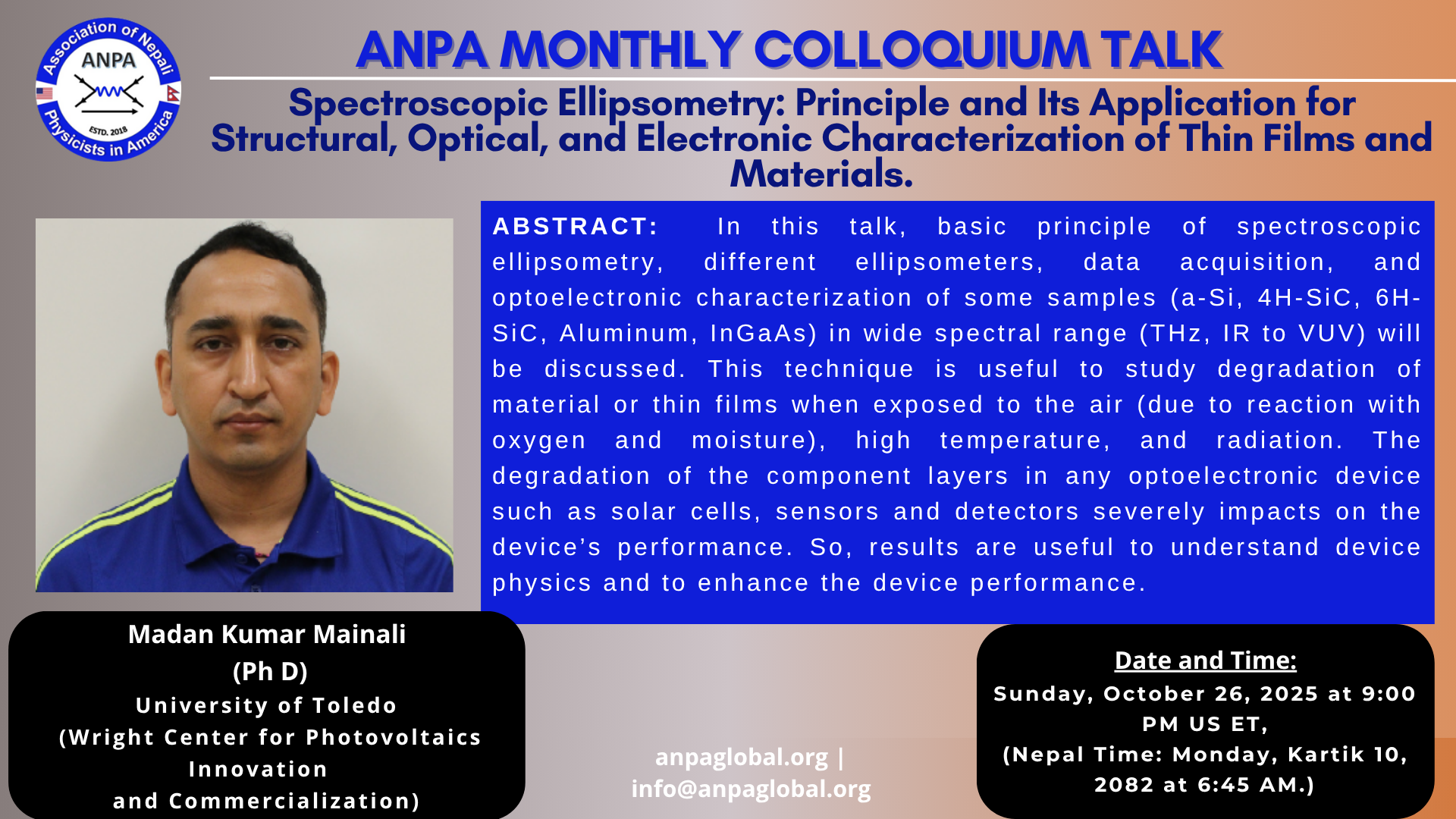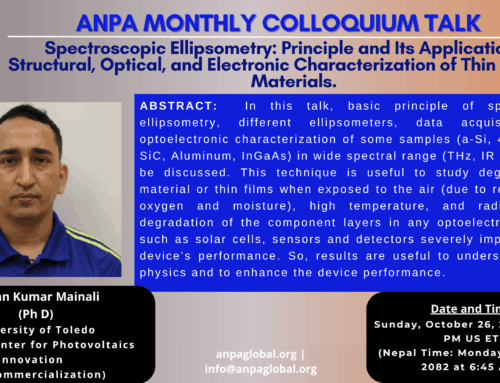
Spectroscopic ellipsometry is a contactless optical probe used to get structural (thickness of film, surface layer, and interfacial layer), optical (band gap, n, k, Urbach energy, phonon/vibrational modes) and free carrier transport properties (resistivity/conductivity, carrier concentration, mobility, scattering time) of the materials. It uses plane-polarized light, whose parallel and perpendicular electric field components undergo changes in amplitude and phase when interacting with materials during reflection and transmission, resulting in elliptically polarized light. Ellipsometry also can be performed real time to get film growth rate, structural evolution, and phase change during the film deposition. Experimentally measured spectra in terms of ψ “and ” ∆ (ellipsometric measurements related to amplitude ratio and phase change) is fitted with model generated data using least square regression analysis which minimizes mean square error. In this talk, basic principle of ellipsometry, different ellipsometers, data acquisition, and optoelectronic characterization of some samples (a-Si, 4H-SiC, 6H-SiC, Aluminum, InGaAs) in wide spectral range (THz, IR to VUV) will be discussed. This technique is useful to study degradation of material or thin films when exposed to the air (due to reaction with oxygen and moisture), high temperature, and radiation. The degradation of the component layers in any optoelectronic device such as solar cells, sensors and detectors severely impacts on the device’s performance. So, results are useful to understand device physics and to enhance the device performance.
Date and Time:
Sunday, October 26, 2025 at 09:00 PM. US ET,
(Nepal Time: Monday, Kartik 10, 2082 at 6:45 AM)
Webex link will be provided to ANPA members via email.





Leave A Comment